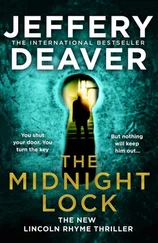“Was there anything else in the bag?”
“It was empty when we got inside.”
“And they were here when you came knock, knock, knocking on the door?”
“We saw them, yes.”
“And the sentence that would accompany that one is: But we don’t know how they got out.”
“That’s right.”
“With my prize, my prize... What’s on the recorder? My, it’s quite the old one, isn’t it? Don’t see those outside of movies.”
“Just music.”
“Was Gahl a music lover?”
“Apparently so,” Braxton said.
“And you’ve explored every place that he had a connection with, everywhere he could have hidden it?”
“Yes.”
His expression perplexed, Devereux said in a snide voice, “Oh, but wait. Wait. That can’t be right.”
She looked at him, lips tight.
“It appears you didn’t explore one place. The one where Mr. Colter Shaw found it and you did not.” He looked at the woman, eye to eye. They were the same height. “Do you suppose he gamed you, Irena? That map you stole? Do you think it was fake?”
Her face went still. She didn’t answer.
“What is our only priority? Mine and yours and Ian’s?”
“The Endgame Sanction.”
“Ex-actly,” purred the man.
“We’ll find it, Mr. Devereux.”
He could see it pained her to use his last name. He’d probably done some whip-cracking about protocols when he signed on as a client of BlackBridge. He’d want to be worshipped. He was the heir to sloppily beheaded royalty. His company was in better economic shape than Spain. And as his minions had not delivered the precious Sanction, he could snap a vicious whip whenever he wanted.
She offered, “It’s a minor setback. Shaw did most of the work for us. He found the courier bag. Now we just have to get the Sanction from him.”
A hurry-up gesture of Devereux’s hands. “But he got away from you here.”
“He did. But I’m sure he doesn’t even know what it is. He’d never recognize it.”
Shaw shook his head. He’d hoped they would say something more about it, so they could identify it in the contents of the courier bag — or know for certain that it wasn’t there and begin a new search.
Devereux glanced back toward the street, where the woman in the white dress would be waiting for him. Then his eyes took in the blond BlackBridge op, looking her up and down. The gaze was the same as that in the faces of Shaw’s nieces when they were about to devour ice cream sundaes.
“Who’s the other one? The one with the beard?”
“We don’t know. Maybe the son of another one of Ashton’s colleagues.”
Devereux examined another ceramic figurine. “How do you propose to find him?”
“Oh. He’ll come to us.”
His flitty British accent seemed more exaggerated than earlier as he asked, “And that will happen how?”
The woman pulled a piece of lint off her sweater and let it spiral to the floor. She didn’t answer Devereux but said to Droon, “Get some people to Bethesda. And find somebody in Fresno. Somebody good.”
“I’ll do it now.”
His heart pounding, Shaw looked at Russell, whose face had gone cold.
Their sister, Dorion, lived in Bethesda, Maryland.
And Fresno was the closest large city to the Compound, where their mother, Mary Dove Shaw, was at that very moment.
“Hello?” the woman on the other end of the phone line asked. Her voice was melodious.
Colter Shaw said, “The roses arrived. They look good.”
There was silence, as he knew there would be. Dorion Shaw was processing the words.
“Anything I should know about them?”
“No details at this time.”
“Thanks. Good talking to you.” Dorion hung up.
Those words put in motion Escape Plan B. This involved the recipient’s dropping everything and leaving the premises instantly — along with other family members. In Dorion’s case that would include her husband and the ice-cream-loving daughters.
Before Dorion married, she’d told her fiancé about certain irregularities of her life growing up, and that there might be the occasional threat, some worse than others. Plan B meant that they were in imminent danger. It was one of Ashton Shaw’s two most serious alerts, and one that nobody in the family ever questioned.
The sturdy woman in her late twenties would by now already be marshalling children and spouse and grabbing GTFO bags from the cellar and heading, via a circuitous route and a cutout car or two to a “vacation house,” which is what the girls would think of it as. They were out of school and they might feel some pique that they had to miss photo camp or soccer practice. But they too would have received some lessons in what life might be like if you were a Shaw.
His next call was to his mother. His message to Mary Dove was different. He said, “Dinner will be late tonight.”
“I’m sorry to hear that.”
“But the guests’ll be arriving soon.”
“I’ll look forward to seeing them.”
Both hung up simultaneously.
This message invoked Plan A. It did not signal escape, but defense. Dorion lived in a vulnerable suburban setting, while Mary Dove was on the Compound, a place she would never be forced from — especially in the case of invaders responsible for her husband’s death. The whole point of Ashton’s survivalism was to prepare for threats like this. His mother was the best shot in the family, and she had a go bag ready in case she needed a temporary retreat into the wilderness — and pity any BlackBridge op who followed her there.
But against this crew it would be wise for her to have allies. Hence, the soon-to-arrive “guests.” Of course, she had one ally in Victoria Lesston, the decorated former Delta Force officer who could bring down a game bird with a single shot from a handgun. But Shaw wanted more, so he called Tom Pepper and told the former FBI agent specifically what the concern was. He said he’d have two armed former special services ops at the Compound in a half hour.
“Would Mary Dove mind a helicopter landing in her backyard?” Pepper asked.
Shaw considered this. “Just tell them not to use the garden as a landing zone if they can avoid it. She just planted the root vegetables and she’s especially partial to them.”
The Embarcadero.
This was the name of both a lengthy road that runs along the northeast waterfront of San Francisco and the district for which that highway is a spine.
The two-mile-long strip was for years associated with transportation: the roadway itself, of course; a Belt Railroad, lugging products and produce north and south; an impressive pedestrian footbridge; and a second subterranean road.
It was, however, vessels that defined the Embarcadero. Liners, cargo, ferries. The ships operating out of Piers 1, 1½, 3 and 5, in the central Embarcadero, would transport thousands of passengers and untold tons of freight daily to ports foreign and domestic, including the picturesque waterway up to Sacramento. During the Second World War, the Bayfront became a de facto naval base.
Then came the Bay Bridge, connecting San Francisco to Oakland.
And almost immediately the Embarcadero began to die. Not helping the vitality of the neighborhood was the transition from the old-style break-bulk vessels to enormous container ships, which needed massive piers and cranes and warehouses for which only Oakland had the space — and aesthetic tolerance.
The dilapidation of the Embarcadero lasted only so long, however. Given that much of the neighborhood was flanked by upscale Telegraph Hill to the north and the spreading financial district to the west, it was only a matter of time until the neighborhood began to recuperate. It was now largely gentrified and farmers-marketed, though its original blunt scruffiness could still be found in the southern regions.
Читать дальше
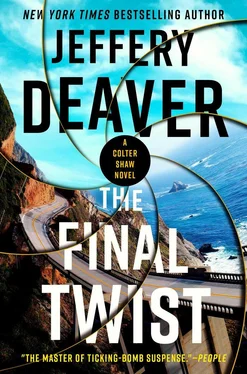
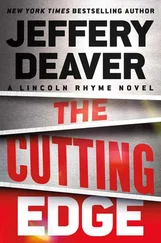





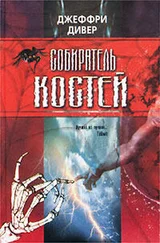
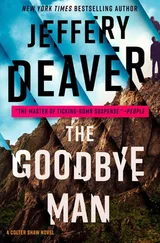
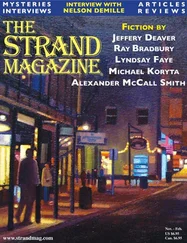
![Джеффри Дивер - Where the Evidence Lies [A Lincoln Rhyme Short Story]](/books/403782/dzheffri-diver-where-the-evidence-lies-a-lincoln-r-thumb.webp)

